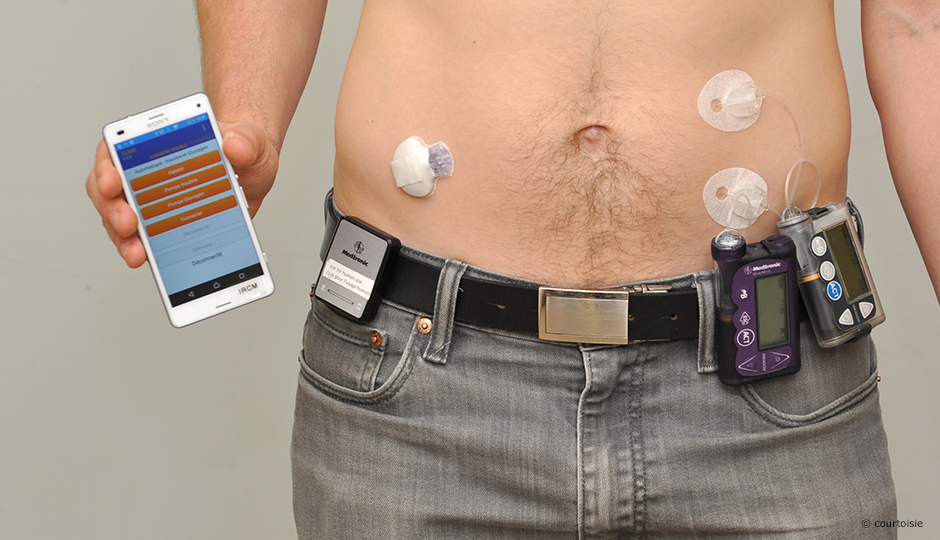For people with diabetes, figuring out the doses of insulin that they must inject can be like filing a tax return: a major headache! That is why Dr. Rémi Rabasa-Lhoret at the Institut de recherches cliniques de Montréal designed an artificial pancreas that automatically injects the right amount of insulin based on the patient's blood glucose level (sugar). The early results speak for themselves. The prototypes help better control hyperglycemia (high blood sugar) by 15 to 20% and reduce the number of cases of hypoglycemia (low blood sugar) by 4 to 8 times.
The findings revealed that the artificial pancreas provided better glycemic control than standard pumps.
Dr. Rabasa-Lhoret follows hundreds of patients with type 1 diabetes. A chronic disease for which there is no cure, type 1 diabetes strikes when the body stops releasing insulin—a hormone that lowers blood sugar levels. More and more people with diabetes rely on a pump that continuously administers a set dose of insulin. But because the pump does not automatically adjust the dose according to blood sugar levels, the patient must accurately calculate the dose of insulin based on his or her meals and physical activity. Studies show that 75% of people with diabetes do not reach their blood sugar targets and risk complications such as blindness, kidney failure, loss of consciousness and even coma.
The automated system developed by the physician and his team relies on an intelligent dosage algorithm to simulate a healthy pancreas. Built into a smartphone connected to a standard insulin pump, it constantly recalculates the dose of hormone required based on the individual's glycemic changes. There are two types of artificial pancreases: one that administers only insulin and another that injects insulin and glucagon, a hormone that raises blood sugar levels when the patient is hypoglycemic.
Dr. Rabasa-Lhoret led the first international study to compare three diabetes treatment options in 30 patients. The findings revealed that the artificial pancreas provided better glycemic control than standard pumps. The researcher is now waiting for the green light from Health Canada to begin new comparative studies over longer periods. The artificial pancreas could be brought to market in the next five to seven years.




